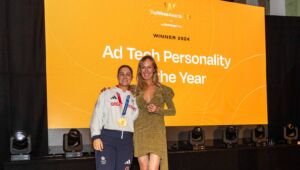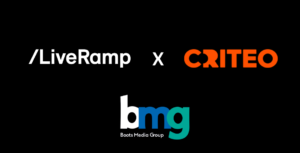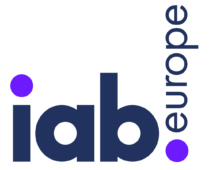'Seek to Replace Yourself': AI Driving Innovation at AdTech Connect
by on 15th Nov 2024 in News

The recent AdTech Connect event brought together industry experts to explore the fast-evolving role of generative AI (GenAI) in advertising technology.
As a tool now widely adopted by both startups and established tech firms, GenAI is transforming everything from creative processes to client communications. Moderated by Rishan Chopra, the event featured a robust discussion with panellists from companies like RAAS Lab, PubMatic, IAB Tech Lab, and Smart Assets, who shared unique perspectives on GenAI's impact over the last 18 months.
AI’s Multifaceted Utility in Ad Tech

The panel began with lighthearted reflections on personal uses of AI, from Lisa Kalyuzhny of PubMatic using ChatGPT to fine-tune her emails, to Guy Jackson of RAAS Lab using it for "personal coaching." Lindsay Hong of Smart Assets expressed fascination with Crystal Knows, an AI tool that profiles individuals’ personalities based on LinkedIn data, allowing users to optimise communication strategies.
AI’s Transformational Impact on Business
The conversation soon shifted to the business side, with Chopra asking how GenAI has shaped operations over the last 12-18 months. Jackson discussed how RAAS Lab, a GenAI-powered startup, leverages AI to simplify complex creative workflows. "We’ve disrupted companies by automating processes that were once highly manual," he explained. This automation has enabled RAAS Lab to offer personalised ad content in ways previously unimaginable.

For Lisa Kalyuzhny, AI's impact at PubMatic is notable in programmatic ad review. She explained how AI tools help their team ensure brand safety in political ad campaigns—a significant area as programmatic advertising increasingly integrates into high-stakes political campaigns.
Shailley Singh of IAB Tech Lab highlighted a different angle: the importance of AI literacy in the industry. Early in 2023, IAB Tech Lab convened a task force to educate the industry on emerging AI applications, releasing detailed documentation to "bring everyone up to speed on what AI is and where it’s going." The organisation also works to enhance transparency in AI interactions by overhauling its user interface for easier information access.

Competitive Pressures and Commoditisation of AI
Hong raised an essential point about commoditisation, which has come swiftly as GenAI tools become broadly accessible. "Clients are going to have access to the same functionalities, and what’s making us stay sharp is our added value," she noted, emphasising that AI-powered assets alone aren’t enough for differentiation. Smart Assets focuses on generating unique insights, customising AI applications for each client’s specific creative needs.
Echoing Hong's sentiments, Jackson agreed that success lies in delivering tangible value, not just novel technology. "Innovation is only good if it actually has an ROI impact," he explained, noting that personalised ads yield improved returns and help programmatic campaigns perform closer to paid social advertising.
AI-Driven Creativity: Case Studies and Success Metrics
Hong and Jackson shared case studies that demonstrated AI’s impact on creative assets. Hong described a collaboration with a luxury cosmetics brand, where Smart Assets used historical performance data to refine creative content. By adjusting design elements—such as reducing the number of products shown and resizing logos—the campaign achieved a "triple-digit increase in ROI," showcasing the power of AI-informed creative adjustments.

Jackson recounted RAAS Lab's innovative AI-generated ad copy that integrated real-time contextual references. In one instance, an ad for a pizza takeaway brand on a page reviewing Star Wars cheekily asked, "Is it film night tonight? May the sauce be with you." This personalised messaging, delivered to more than 100,000 unique contexts, highlighted AI’s role in enhancing engagement.
Preparing for an AI-Driven Future: Skills for the Next Generation
The session concluded with advice for industry newcomers, focusing on adaptability and prompt engineering as critical skills. Jackson emphasised the democratising nature of AI knowledge: "It’s not about who’s the cleverest; it’s about who can effectively use these tools." Singh recommended hands-on experimentation with multiple AI platforms to better understand their unique capabilities and limitations.
Hong offered a pragmatic view: "Seek to replace yourself." She encouraged attendees to identify tasks in their roles that could be automated and to use AI strategically, positioning themselves as indispensable contributors rather than being replaced by technology.
Final Thoughts
The event underscored AI’s profound effect on the industry, from revolutionising creative workflows to fostering new ways to engage clients. Panellists emphasised the need for transparency, creativity, and human-centric value in AI-driven advertising. As Kalyuzhny summarised, "AI helps us do more, but it’s the human touch that differentiates."










Follow ExchangeWire